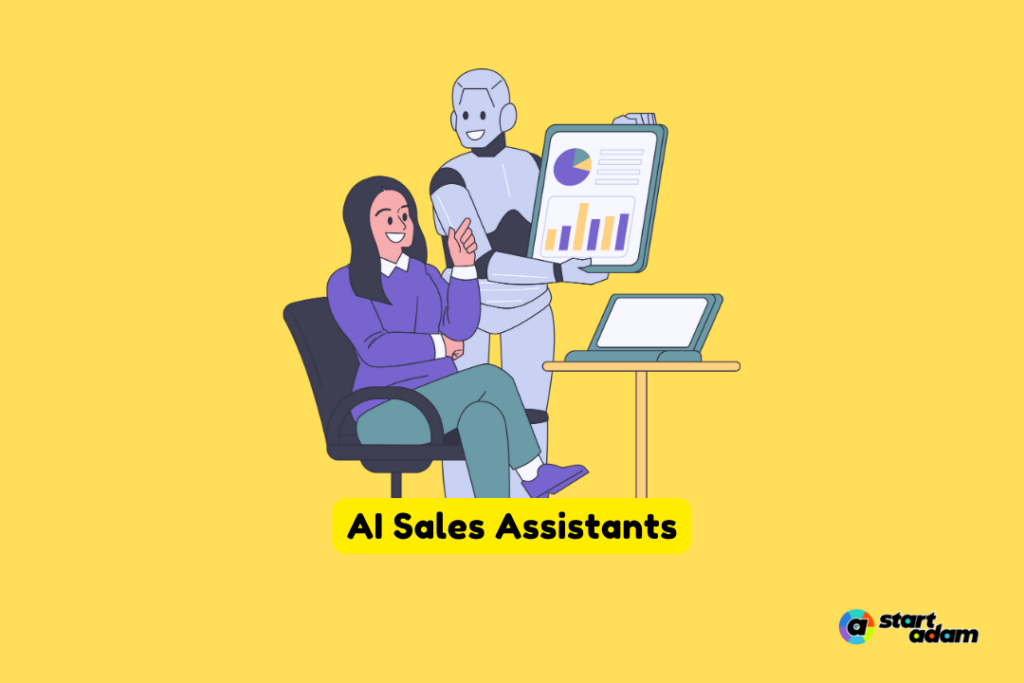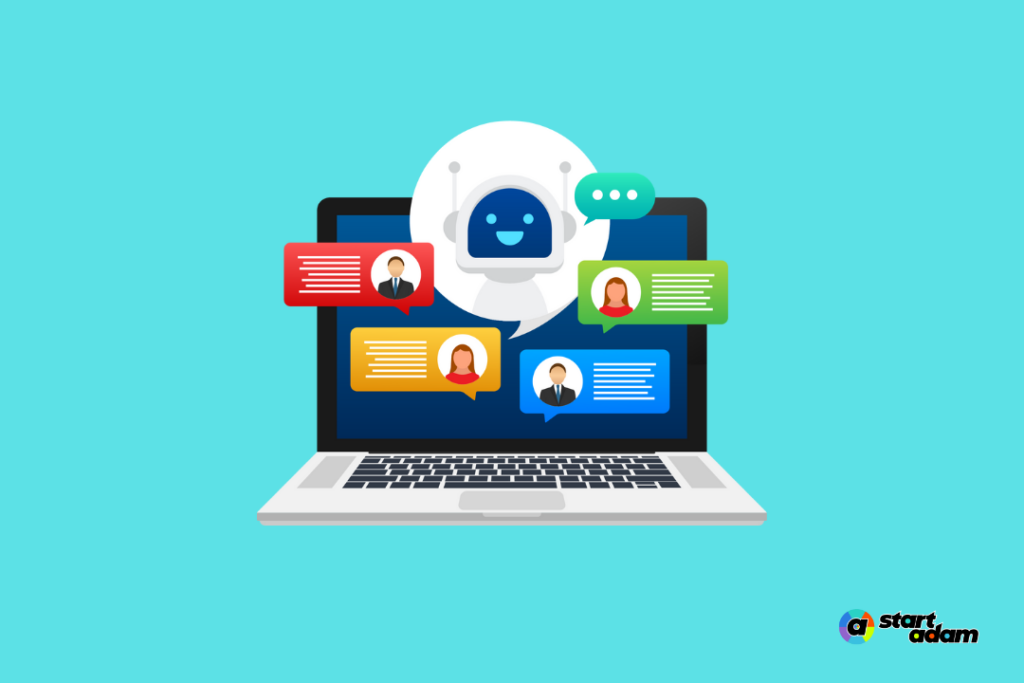AI Sales Assistants
March 12, 2024
April 30, 2024
5 min

Maximizing Your Sales Pipeline Efficiency with AI Sales Assistants
When customers are well served at exactly the right time is also the reason for higher levels of engagement, trust, and efficiency.
In today’s fast-changing business arena, the effectiveness of a sales funnel is the main focus toward achieving revenue growth and gaining a competitive advantage. By introducing AI sales assistants enter smart software programs that are based on AI and machine learning. They provide an essential helping hand to the overall sales process, in terms of prospecting and relationship building using lead generation, customer relationship management and others.
Below are some recommendations to help you improve the operating efficiency of your sales pipeline.
Understanding AI Sales Assistants
AI sales assistants are advanced software tools that automate and optimize many processes of sales. Their primary function is to support sales personnel by performing repetitive jobs, generating useful information, and enabling personalized interactions with prospects and customer experience. These agents use AI and machine learning technology to analyze data, predict results and provide actionable recommendations. It thus boosts sales through chatbot solutions.
AI sales assistants simulate human-like conversations and replies through different CRM channels. Through the use of marketing tools, an AI sales assistant can improve sales opportunities for paying customers through customer-based replies.
Source: 360 Blog

Enhancing Customer Interaction
Automated Follow-up and Outreach:
- AI sales assistants automate follow-up processes.
- Personalized messages, emails, or notifications are sent based on triggers or criteria.
- Tasks include scheduling follow-up interactions and reaching out to interested leads.
- Ensures consistent and timely follow-up, boosting engagement and guiding leads through the sales process.
- Follow-up can then generate leads using customer data.
- Sales chatbot tools from the best sales chatbot can qualify leads of potential customers.
- Potential customers are filtered to sales reps for a more streamlined sales process.
Natural Language Processing for Personalized Communication:
- Understands and responds to leads and customers conversationally.
- Analyzes text inputs to interpret intent, sentiment, and context.
- Provides personalized and relevant responses, enhancing the overall customer experience.
- Offers personalized conversations in the customer journey.
- Improves and engages customers with customer inquiries and sales inquiries. This then allows agents to have more customers overall.
Integration with CRM Systems for Smooth Customer Data Management:
- AI sales assistants seamlessly integrate with CRM systems.
- Access and manage customer data efficiently.
- Sync data in real-time between the artificial intelligence assistant and CRM system.
- Provides personalized recommendations, tracks interactions, and keeps CRM records updated consistently.
Related Reads
- Enhancing Communication Workflows: Insights from CEO’s LinkedIn Post
- Streamlining B2B Sales: Your Guide to Choosing the Right Tools
- The Power of Instant Messaging Solutions and Cross-platform Collaborations
Improving Sales Forecasting
Sales forecasting is a key part of the business planning process, which is made easier by AI sales assistants. Such assistants utilize the latest technology to anticipate future sales trends. Using past data and customer behavior, they can discover tendencies and forecast sales outcomes with great accuracy.
By using their ideas, businesses can make informed decisions and plans. Furthermore, artificial intelligence assistants give companies information by analyzing data and highlighting areas of improvement or adaptation for the future. Sales chatbots then can automate customer support and customer experience to better improve the sales efficiency of qualified leads.
Increasing Sales Team Productivity
To increase sales team efficiency, artificial sales assistants provide interactive features. They first automate repetitive tasks which helps the manager to concentrate on the more important jobs. Therefore, they can delegate tasks efficiently, entrusting them to the best-qualified members of the team. They also make email communication more efficient by automatically sending out personalized messages. Moreover, they feature collaboration tools that facilitate effective communication and coordination within the team. These features make the workflow simpler and more efficient, driving the sales team’s productivity. Human agents whether through customer communications, sales software, or Facebook Messenger can then focus on customer engagement of qualified leads.
Overcoming Challenges and Implementation Considerations
- Acknowledge and address concerns about AI chatbot adoption in sales processes.
- Provide education and training to alleviate fears and misconceptions.
- Develop a clear implementation plan with specific goals and timelines.
- Ensure seamless integration with existing workflows and systems. This can be done through Facebook Messenger and other chat widget tools.
- Involve key stakeholders from different departments to gain buy-in and support.
- Provide comprehensive training on using artificial sales assistants effectively.
- Offer ongoing support and resources to encourage adoption and mastery.
- Emphasize the importance of leveraging AI chatbot as a tool to enhance sales productivity and performance.
Conclusion
In conclusion, AI sales assistants offer significant benefits for maximizing sales pipeline efficiency. By streamlining tasks, providing personalized communication, and offering valuable insights, they enhance the effectiveness of sales teams. Businesses are encouraged to embrace artificial technology to gain a competitive advantage in today’s market. With AI’s transformative potential in sales optimization, early adoption can lead to greater efficiency and innovation. Moving forward, AI growth will determine the ability to use AI to become competitive in the fast-paced sales environment.
Frequently Asked Questions (FAQs)
- What exactly are AI sales assistants?
AI sales assistants an advanced software tools that can run with the aid of AI and machine learning algorithms. They are developed to automate and manage different steps of the sales process, such as prospecting and customer information relationships.
- How can businesses integrate AI sales assistants into their existing workflows?
AI sales assistants can be seamlessly integrated into existing business workflows by following a well-defined implementation plan, smooth connectivity with the existing systems, and comprehensive training and support to the sales teams. Ensure key stakeholders from various sectors are on board to gain traction and acceptance of AI adoption.
- What are the benefits of using AI sales assistants for businesses?
The benefits of AI sales assistants are seen in their ability to improve sales pipeline efficiency, increase productivity, provide enhanced customer experience, and bring better decision-making through data-driven insights. By using AI technology, businesses may have better conversion rates, shorter sales cycles and ultimately, increased revenue.
- How do AI sales assistants improve sales pipeline efficiency?
AI sales assistants automate routine tasks, deliver personalized dialogue, and give precious insights. They automate repetitive activities, including prospecting and follow-up, meaning that sales teams can focus on strategic work. Further, they utilize data analytics to forecast sales trends, spot potential high-value customers, and improve sales techniques leading to better performance.